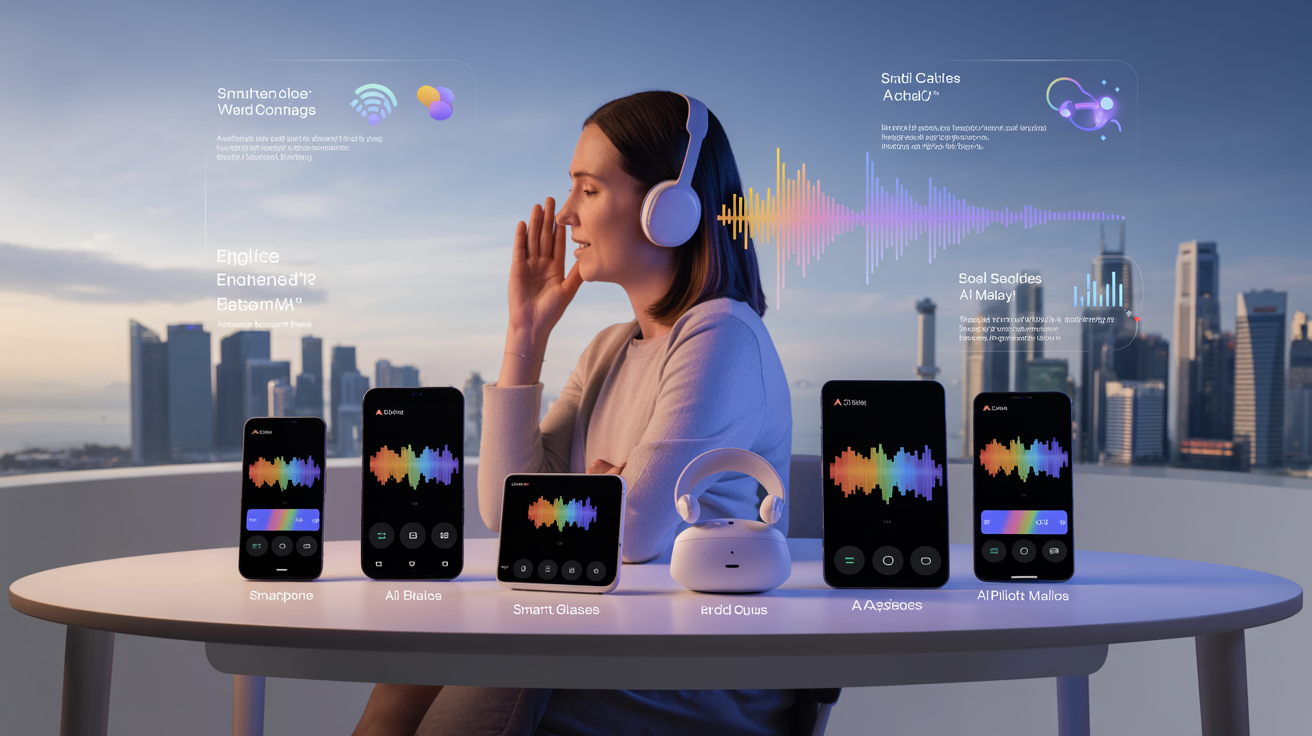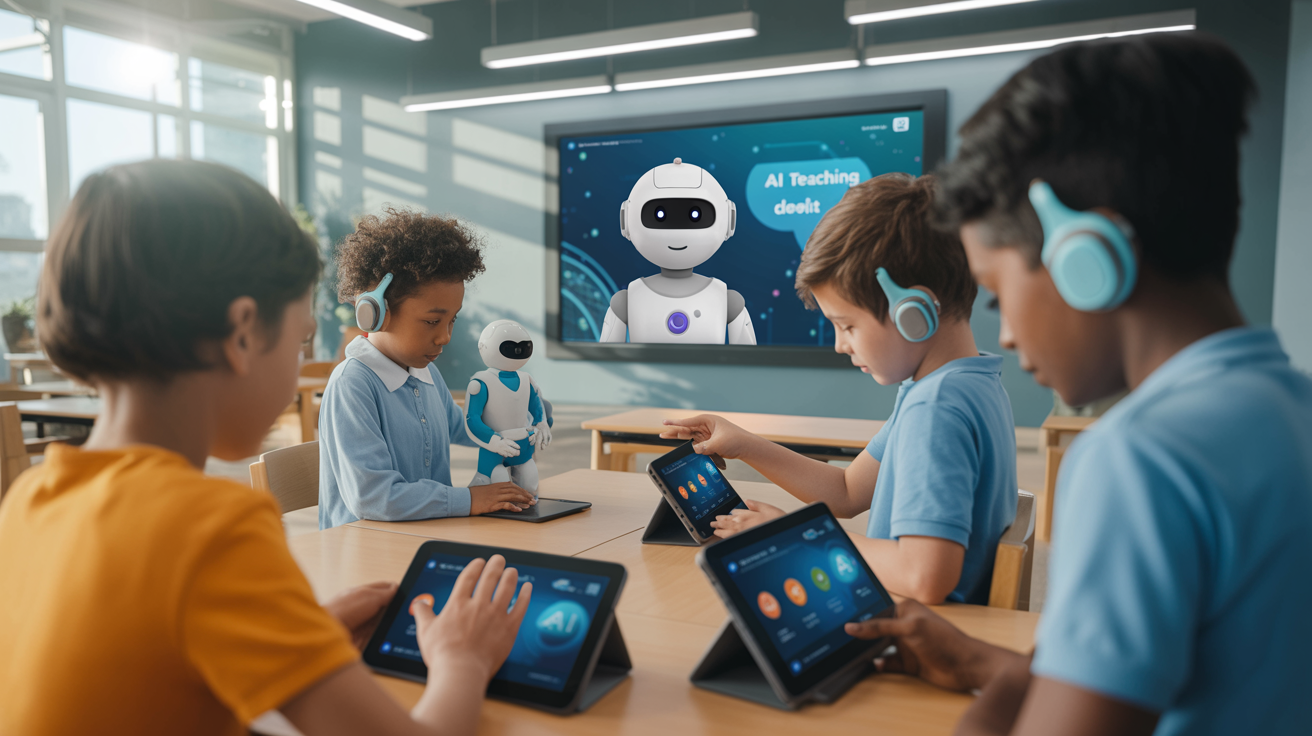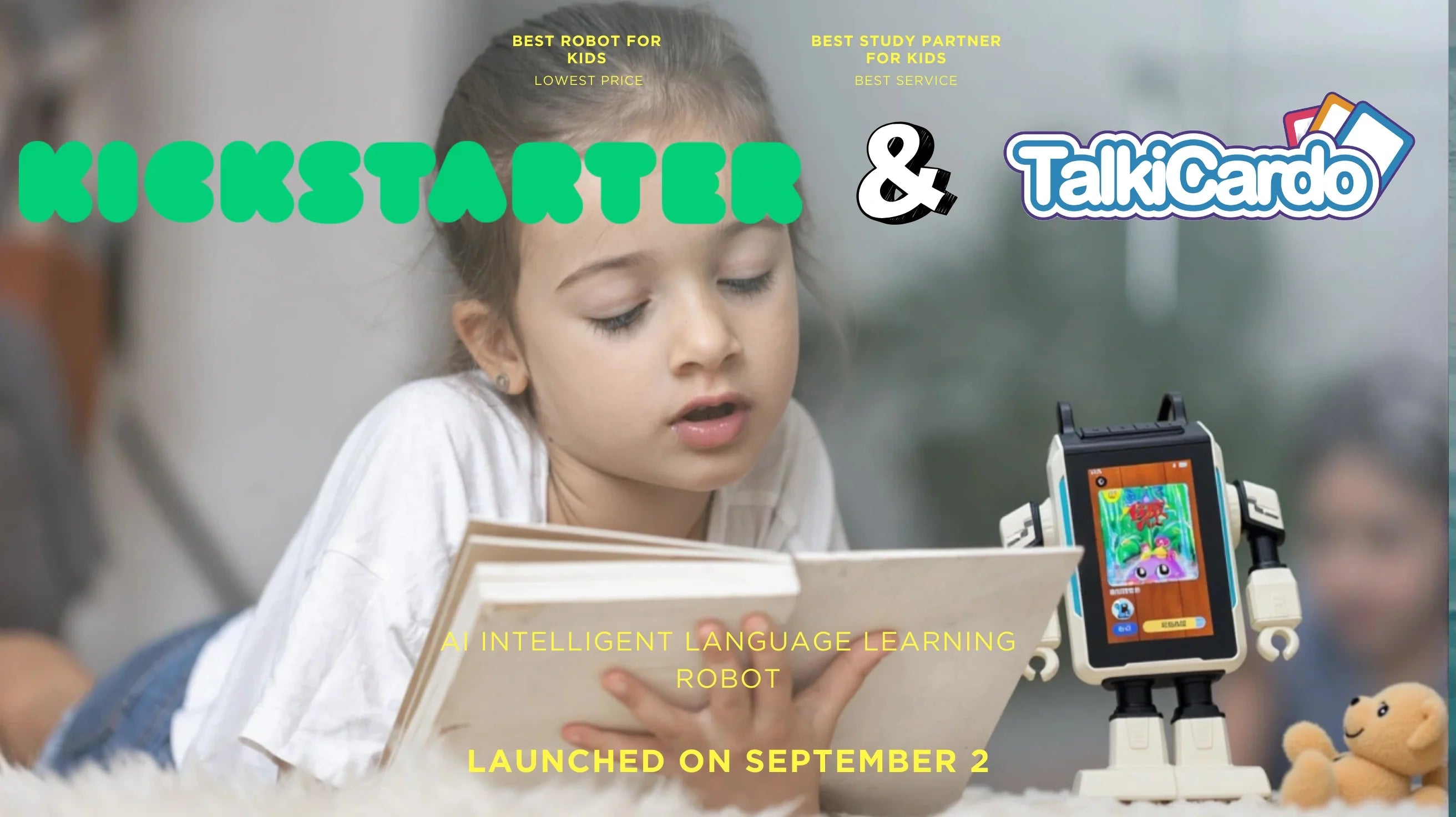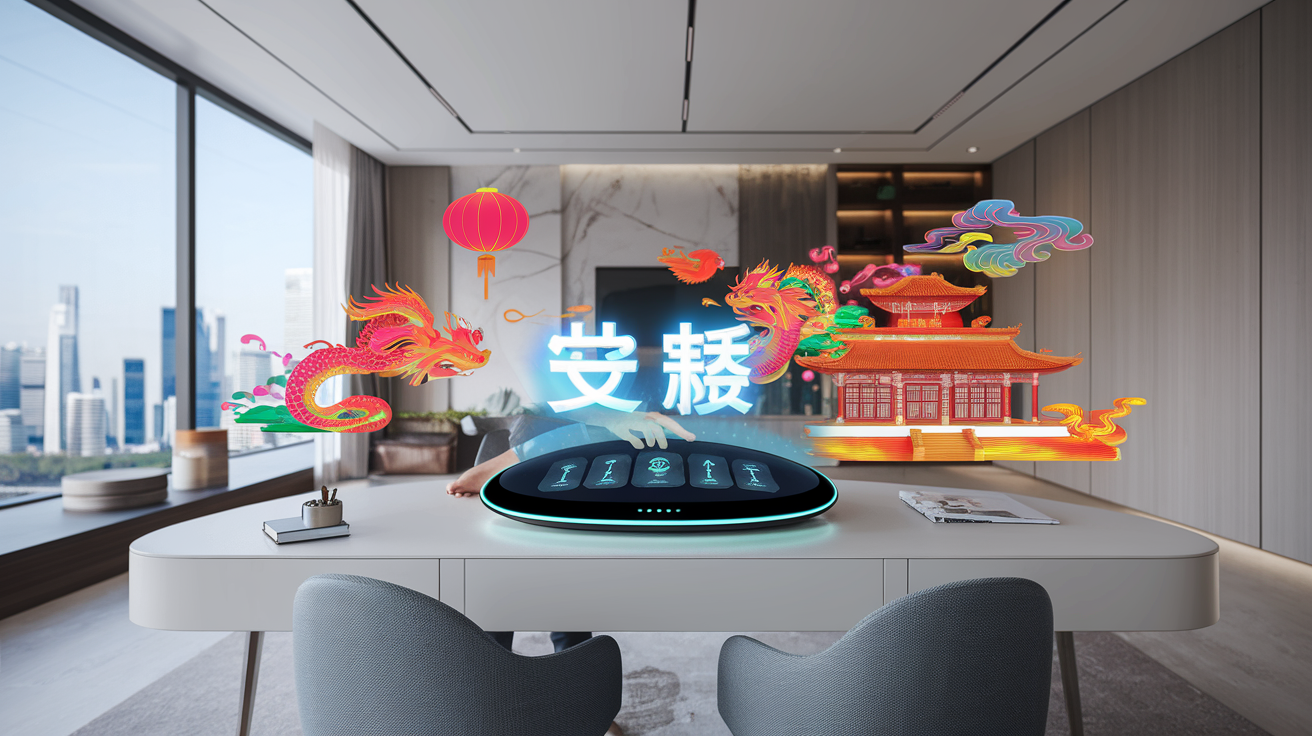
Top 7 AI Conversation Apps for Mandarin Learners
Posted by Aipilot on
Table Of Contents
- Introduction
- Why AI Conversation Apps Are Revolutionary for Mandarin Learners
- How to Choose the Right AI Conversation App
- The Future of AI in Mandarin Language Learning
- Conclusion
Learning Mandarin Chinese is often considered one of the most challenging linguistic journeys an English speaker can undertake. From mastering the four tones to memorizing thousands of characters, the path to Mandarin fluency requires consistent practice, immediate feedback, and authentic conversation opportunities. This is where artificial intelligence has transformed the language learning landscape.
In 2025, AI conversation apps have evolved from simple translation tools to sophisticated language partners that understand context, provide personalized feedback, and even simulate natural conversations with cultural nuances. These digital companions are available 24/7, never tire of your mistakes, and adapt to your learning pace—making them invaluable for Mandarin learners at any level.
Whether you're struggling with pronunciation, looking to expand your vocabulary, or wanting to practice real-world conversations without the anxiety of speaking with native speakers, today's AI apps offer solutions that were unimaginable just a few years ago. In this article, we'll explore the top seven AI conversation apps that are revolutionizing how people learn Mandarin in 2025, helping you choose the perfect digital language partner for your unique learning journey.
Top 7 AI Conversation Apps for Mandarin Learners
Discover the best AI tools revolutionizing Mandarin learning in 2025
Why AI Conversation Apps Transform Mandarin Learning
Tonal Mastery
Perfect pronunciation with real-time feedback on all four Mandarin tones
24/7 Practice
Unlimited conversation practice with patient AI partners that never tire
Cultural Context
Learn cultural nuances and appropriate expressions for different situations
The 7 Leading AI Conversation Apps
TalkiCardo
Child-friendly AI chat cards combining physical and digital learning for young Mandarin learners
Mandarin AI Buddy
Contextual conversations for intermediate learners with adaptive difficulty
LingoPie AI
Conversation practice with characters from Chinese shows and movies
Speechling
Pronunciation focused with AI assessment and optional human coaching
Immersive Mandarin
VR environments for realistic cultural and language immersion
Panda Chat
Personality-driven AI companion for emotional connection and motivation
Pinyin Partner
Specialized pronunciation tool with tone visualization technology
Choosing the Right App for Your Needs
For Beginners
- TalkiCardo (for children)
- Pinyin Partner
- Panda Chat
For Intermediate
- Mandarin AI Buddy
- Speechling
- LingoPie AI
For Advanced
- Immersive Mandarin
- LingoPie AI
- Mandarin AI Buddy
Ready to Transform Your Mandarin Learning?
Discover how AIPILOT's innovative AI language learning solutions can help you achieve fluency faster.
Explore TalkiCardo© AIPILOT - Transforming Language Learning Through AI
Why AI Conversation Apps Are Revolutionary for Mandarin Learners
Traditional Mandarin learning methods often fall short in providing sufficient speaking practice. Textbooks can't correct your tones, language exchange partners aren't always available, and classroom time is limited. AI conversation apps bridge these gaps with several unique advantages:
For starters, Mandarin's tonal nature makes it particularly challenging for non-native speakers. A slight pitch change can completely alter a word's meaning—the difference between saying "mother" (mā) and "horse" (mǎ) is just a tonal inflection. AI apps now use advanced speech recognition to provide instant feedback on tonal accuracy, helping learners develop proper pronunciation habits from the beginning.
Cultural context is another area where AI shines. Learning Mandarin isn't just about vocabulary and grammar; it's about understanding when to use formal versus casual language, recognizing idioms, and navigating social nuances. Modern AI apps incorporate cultural intelligence, teaching you not just how to speak Mandarin, but how to communicate like a native speaker would in various situations.
Perhaps most importantly, AI conversation partners eliminate the fear factor. Many language learners experience anxiety when practicing with native speakers, worrying about making mistakes or not understanding responses. AI creates a judgment-free zone where learners can make hundreds of mistakes without embarrassment, building confidence before taking their skills into real-world interactions.
Top 7 AI Conversation Apps for Mandarin Learners in 2025
1. TalkiCardo: Smart AI Chat Cards for Kids
While many AI language tools target adult learners, TalkiCardo has carved a unique niche as a child-friendly AI conversation system that makes Mandarin learning both safe and engaging for young learners. Developed by AIPILOT, TalkiCardo combines physical cards with advanced AI to create an interactive experience that bridges digital and tactile learning—perfect for children who benefit from multi-sensory education.
The system features colorful, durable chat cards that children can hold, arrange, and interact with. Each card activates different AI conversation scenarios specifically designed for young Mandarin learners, with age-appropriate vocabulary and contexts like ordering food, making friends, or talking about hobbies. The AI responds at a pace suitable for children, with simplified language that gradually increases in complexity as the child progresses.
What truly sets TalkiCardo apart is its focus on child safety and positive reinforcement. Unlike open-ended AI chat systems, TalkiCardo creates a controlled learning environment with content specifically curated for children. The AI companion offers enthusiastic encouragement, celebrates small victories, and builds confidence through gamified elements that make Mandarin practice feel like play rather than study.
Parents appreciate the progress tracking features that highlight improvements in pronunciation, vocabulary retention, and conversational skills. For families committed to raising bilingual children, TalkiCardo provides a structured yet flexible approach to introducing Mandarin as a second language during those critical early learning years.
2. Mandarin AI Buddy
Mandarin AI Buddy has established itself as the go-to app for intermediate learners looking to break through the notorious "plateau phase" of language acquisition. Using a sophisticated AI engine trained on millions of natural conversations, this app creates remarkably human-like interactions that adapt to your specific learning needs and conversational style.
What makes Mandarin AI Buddy particularly effective is its contextual learning approach. Rather than isolated drills, the app engages you in extended conversations about topics you're interested in—from Chinese cinema to business negotiations or everyday situations like navigating public transportation in Beijing. The AI remembers previous conversations, building on topics you've discussed before and reintroducing vocabulary you struggled with previously.
The app's "Adaptive Difficulty" feature subtly adjusts the complexity of language based on your performance, pushing you just beyond your comfort zone without causing frustration. When you successfully navigate a challenging conversation, the AI might introduce more colloquial expressions or increase its speaking pace slightly in the next session.
For business professionals, Mandarin AI Buddy offers specialized modules focusing on industry-specific terminology and formal business Mandarin, making it invaluable for those preparing for international roles in China-related industries. The app's speech recognition technology is particularly adept at detecting subtle pronunciation errors that even human teachers might miss, providing targeted exercises to address specific phonetic challenges.
3. LingoPie AI
LingoPie AI has transformed the passive experience of watching Chinese media into an interactive language learning powerhouse. Building on LingoPie's original concept of learning through authentic media content, the AI-enhanced version now allows learners to have conversations with characters from their favorite Chinese shows and movies after watching clips.
This innovative approach contextualizes language learning within cultural narratives, helping users understand not just the vocabulary and grammar, but the situations in which certain expressions are used. After watching a scene from a popular Chinese drama, you can practice similar conversations with an AI version of the character, exploring different responses and outcomes.
The app's "Culture Notes" feature is particularly valuable, offering real-time explanations of cultural references, idioms, and social norms that might otherwise be lost on non-native speakers. For example, if a character uses a traditional saying or makes a historical reference, the AI will explain its significance and how it reflects Chinese cultural values.
LingoPie AI excels at teaching the natural rhythm and intonation of Mandarin through its "Shadow Speaking" feature, where you mimic dialogue from authentic content while receiving feedback on your pronunciation and timing. For learners who find traditional textbook approaches boring, LingoPie AI offers an entertaining alternative that keeps motivation high through engaging with content you genuinely enjoy.
4. Speechling
Speechling has evolved from its origins as a pronunciation tool to become one of the most comprehensive speaking-focused apps for Mandarin learners in 2025. What distinguishes Speechling is its hybrid approach that combines AI assessment with optional human coach feedback, offering the best of both worlds for serious language students.
The app's AI component provides immediate feedback on pronunciation, tonal accuracy, and natural speech flow, using visual representations of sound waves to show exactly where your pronunciation differs from native speech patterns. This instant feedback loop allows for rapid improvement through high-volume practice—you can record hundreds of phrases in a single practice session and receive detailed AI analysis for each attempt.
For learners who want a more personalized touch, Speechling's subscription tiers include options for human coach reviews, where professional Mandarin teachers provide nuanced feedback on aspects of speech that AI might not fully capture, such as emotional expression or regional accent subtleties. This combination creates a powerful learning system where you can practice independently with AI most of the time, supplemented by periodic human expert guidance.
Speechling excels in its methodical approach to building speaking skills, starting with individual sounds, progressing to words, then phrases, sentences, and ultimately free-form speaking. The app's extensive library includes content categorized by difficulty level and topic, making it easy to find practice material relevant to your interests and proficiency level. For learners specifically focused on mastering Mandarin's challenging pronunciation system, Speechling remains the gold standard in 2025.
5. Immersive Mandarin
Virtual reality meets language learning in Immersive Mandarin, the most technologically advanced app on our list. While requiring compatible VR hardware, this app creates unparalleled immersion by transporting learners to virtual Chinese environments where they interact with AI characters in contextually appropriate settings—ordering food in a Beijing restaurant, haggling at a market in Shanghai, or navigating a business meeting in Shenzhen.
The app's neural rendering technology creates photorealistic environments and characters with facial expressions and body language that respond naturally to your speech and actions. This multi-sensory approach activates more areas of your brain during language learning, potentially improving retention and recall. Research has shown that memories formed in VR environments can be stronger than those formed through traditional learning methods, giving Immersive Mandarin a scientific edge.
Beyond conversation practice, the app incorporates character recognition exercises where you physically interact with Chinese characters in 3D space, helping visual and kinesthetic learners better understand character composition and stroke order. For learners struggling with the abstract nature of Chinese characters, this tangible interaction can be transformative.
What truly sets Immersive Mandarin apart is its "Cultural Simulation" feature, which replicates social situations where cultural knowledge is as important as linguistic ability. From the proper way to exchange business cards to appropriate behavior at a Chinese family dinner, these simulations prepare learners for the cultural aspects of communication that textbooks often neglect. For those planning to visit or work in China, this cultural training is invaluable preparation for real-world interactions.
6. Panda Chat
Panda Chat has gained popularity as the most personality-driven AI conversation app for Mandarin learners. Unlike more clinical language tools, Panda Chat creates an emotional connection with users through its charming panda character interface and conversational AI that's designed to be not just helpful, but genuinely enjoyable to talk with.
The app's creators have focused on making language practice feel less like studying and more like chatting with a friend who happens to be helping you learn. This approach addresses one of the biggest challenges in language learning: maintaining motivation over time. By creating an AI companion that users look forward to talking with each day, Panda Chat has achieved impressive user retention rates and consistent practice patterns among its users.
Behind its cute exterior, Panda Chat employs sophisticated language processing technology that can detect emotional cues in your speech and respond appropriately—offering encouragement when you're struggling, celebrating your successes, and even using humor to lighten the mood when appropriate. This emotional intelligence helps create a supportive learning environment that reduces anxiety and builds confidence.
The app excels at teaching conversational Mandarin that sounds natural rather than textbook-formal. Its "Expression Library" feature introduces colloquialisms, slang, and trendy expressions used by young Chinese speakers, helping learners develop a more authentic speaking style. For those who find traditional language learning dry or boring, Panda Chat's personality-first approach offers a refreshing alternative that keeps practice sessions feeling fresh and engaging.
7. Pinyin Partner
Rounding out our list is Pinyin Partner, an app specifically designed to help beginners master the foundation of Mandarin pronunciation through its revolutionary AI speech analysis system. While other apps cover broader language skills, Pinyin Partner has a laser focus on helping learners perfect their pronunciation of Mandarin's sounds and tones from day one—preventing bad habits that can be difficult to correct later.
The app's proprietary "Tone Visualization" technology creates intuitive visual representations of the four Mandarin tones, showing your voice pattern overlaid with the ideal tone pattern in real-time as you speak. This visual feedback makes the abstract concept of tones concrete and understandable, helping learners develop accurate muscle memory for producing these sounds correctly.
Pinyin Partner's adaptive curriculum creates a personalized learning path based on your native language, identifying which Mandarin sounds are most challenging for speakers of your language background and providing targeted exercises to address these specific difficulties. For example, English speakers receive extra practice with distinguishing between "x" and "sh" sounds, while Japanese speakers get more help with the "r" sound.
The app's "Minimal Pairs Training" feature helps train your ear to distinguish between similar-sounding words through carefully structured listening exercises, developing the phonemic awareness necessary for both speaking and listening comprehension. While Pinyin Partner lacks the extended conversation capabilities of other apps on this list, its specialized approach makes it an ideal starting point for beginners or a valuable supplement for more advanced learners looking to refine their pronunciation.
How to Choose the Right AI Conversation App
With so many impressive options available, selecting the right AI conversation app depends on your specific learning situation and goals. Consider these factors when making your decision:
Your current proficiency level is perhaps the most important consideration. Beginners might benefit most from apps like TalkiCardo (especially for young learners) or Pinyin Partner, which build strong foundations in pronunciation and basic conversation. Intermediate learners might find Mandarin AI Buddy or Speechling more beneficial for breaking through plateaus, while advanced learners could extract more value from the cultural nuances taught in Immersive Mandarin or LingoPie AI.
Learning style also plays a crucial role in app selection. Visual learners might prefer the immersive environments of Immersive Mandarin, while auditory learners could benefit more from the pronunciation focus of Speechling or Pinyin Partner. If you learn best through emotional connection and storytelling, Panda Chat or LingoPie AI might be more engaging for your personal learning style.
Consider your specific goals as well. Business professionals preparing for work in China should prioritize apps with business-oriented content like Mandarin AI Buddy. Those planning to travel might benefit most from the situational practice in Immersive Mandarin. Parents looking to introduce Mandarin to young children would find TalkiCardo's child-friendly approach ideal for creating positive early language experiences.
The Future of AI in Mandarin Language Learning
As we look beyond 2025, the integration of AI in language learning continues to evolve rapidly. Emerging technologies like advanced haptic feedback systems may soon allow learners to "feel" the correct mouth positions for difficult Mandarin sounds. Brain-computer interfaces are beginning to show promise for accelerated vocabulary acquisition by identifying optimal timing for introducing new words based on neural readiness.
Multi-modal AI systems that simultaneously analyze facial expressions, body language, and vocal patterns are improving emotional intelligence in language instruction, helping learners master the subtle non-verbal aspects of communication that are essential in Chinese culture. These developments suggest that future AI language partners will become increasingly sophisticated in their ability to provide holistic language education.
Perhaps most exciting is the potential for AI to personalize learning pathways based on increasingly comprehensive learner data. By analyzing thousands of data points about how you learn—from the times of day when your retention is highest to the specific types of exercises that produce the best results for your learning style—future AI systems will create truly individualized curriculum that maximizes efficiency and effectiveness.
However, as these technologies advance, the human element of language learning remains irreplaceable. The most effective approach continues to be one that combines AI tools for consistent practice and feedback with human interaction for cultural understanding and authentic communication. The apps we've highlighted represent the current pinnacle of this balanced approach, using AI to enhance rather than replace the human aspects of language acquisition.
Conclusion
The landscape of Mandarin learning has been fundamentally transformed by AI conversation technology, making what was once one of the world's most challenging languages more accessible than ever before. Each of the seven apps we've explored offers unique strengths and approaches to language acquisition, catering to different learning styles, age groups, and proficiency levels.
For young learners, TalkiCardo provides a safe, engaging introduction to Mandarin through its innovative combination of physical cards and AI conversation. Intermediate learners can break through plateaus with Mandarin AI Buddy's contextual conversations or Speechling's precision pronunciation feedback. Those seeking immersion can step into virtual Chinese environments with Immersive Mandarin, while learners wanting cultural context can engage with media-based learning through LingoPie AI.
The emotional connection fostered by Panda Chat keeps motivation high through personable interactions, while Pinyin Partner ensures beginners build a solid foundation in Mandarin's challenging phonetic system. Together, these apps represent the cutting edge of language learning technology in 2025, offering solutions for virtually every learning challenge associated with Mandarin acquisition.
As AI technology continues to evolve, we can expect even more sophisticated and effective language learning tools in the future. However, the core principles remain consistent: consistent practice, immediate feedback, contextual learning, and emotional engagement are the keys to language mastery. These AI conversation apps deliver on these principles in innovative ways, making the journey to Mandarin fluency more achievable—and enjoyable—than ever before.
Ready to transform your Mandarin learning journey?
Discover how AIPILOT's innovative AI language learning solutions can help you or your child achieve fluency faster. From our TalkiCardo Smart AI Chat Cards for kids to our comprehensive suite of language learning technologies, we're making Mandarin learning more engaging, effective, and enjoyable.
Visit AIPILOT today to explore our full range of AI-powered language learning solutions and take the first step toward Mandarin fluency.

















































